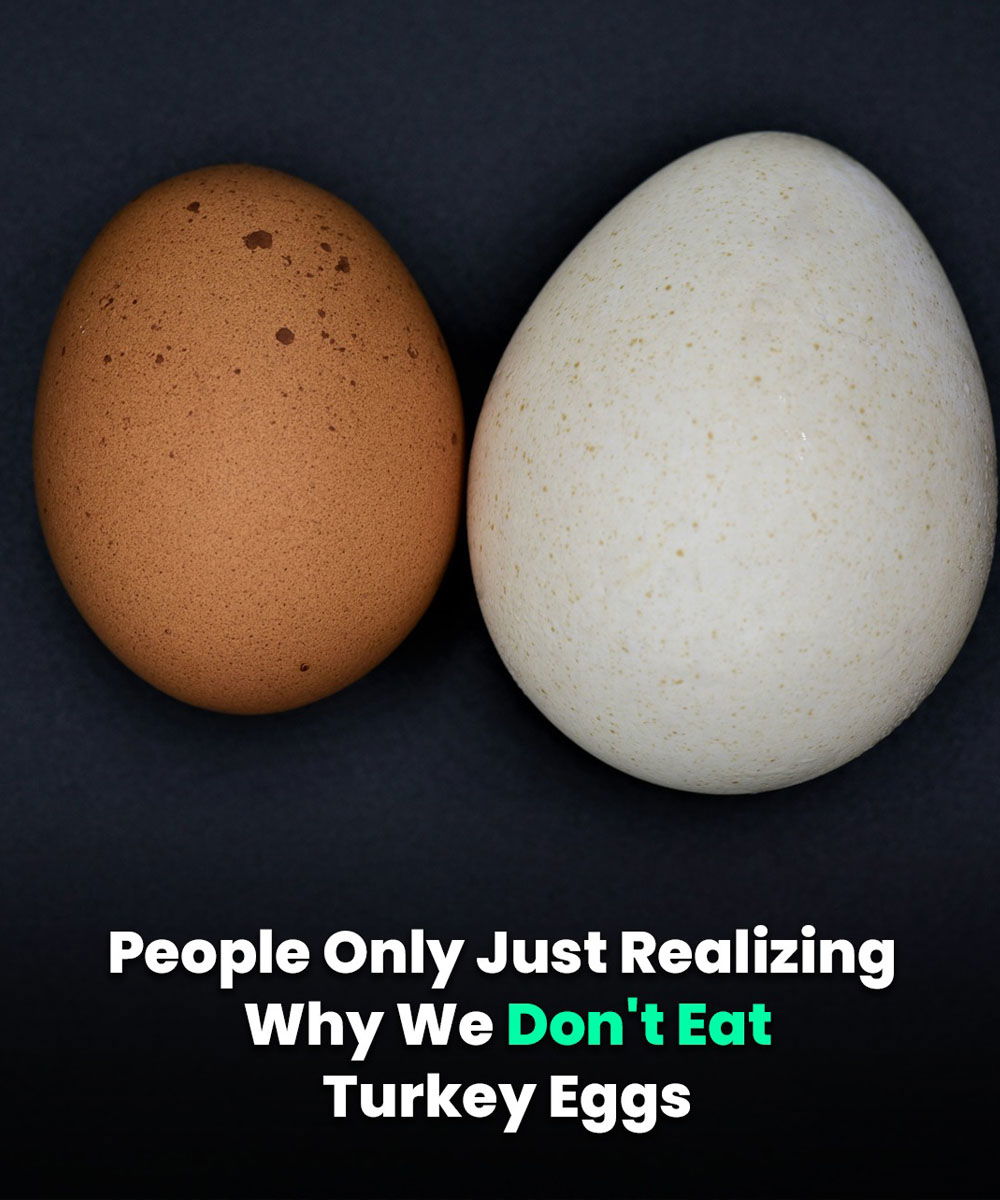“We eat chicken, duck, and even quail
eggs — so why not turkey eggs? 🤔
The reason might surprise you...”
People have been left sh0cked after they learned why we don’t eat turkey eggs.
While turkeys are a popular choice for holiday feasts like Thanksgiving, Christmas, etc, many people are surprised when realizing that their eggs are rarely, if ever, seen on store shelves or breakfast menus.
The causes for this omission boil down to biology, economics, and even some historical misconceptions.

The main issue lies in the turkey’s reproductive habits. Unlike chickens, which can lay an egg almost daily, turkeys are much less productive.
“Turkeys have a longer life cycle, so they need to get to about seven months before they are able to produce laying eggs,” explained Kimmon Williams of the National Turkey Federation to MailOnline.
In contrast, chickens can begin laying at around five months and produce up to six eggs a week.
This slower production rate, combined with the fact that turkeys require more space and feed, significantly increases the cost of farming them for eggs.
Experts estimate that a single turkey egg would need to be sold for at least $3.00 to make a profit, making a dozen cost about $36.
In comparison, a dozen chicken eggs typically cost just a few dollars.
Nutritionally, turkey eggs are heavier than chicken eggs, packing roughly double the calories and fat, along with triple the cholesterol.
According to Slate, while some chefs have praised their rich, creamy yolks for making superior sauces, this culinary advantage hasn’t been enough to create widespread demand.

Historically, turkeys are native to North America and were a significant food source for Indigenous tribes long before chickens arrived with European settlers in the 1500s.
As early Europeans encountered turkeys in the New World, they were intrigued enough to bring the birds back home.
Yet, misinformation soon spread, particularly in France, that these eggs might be linked to leprosy, which discouraged their consumption.
In early America, these eggs were sometimes considered a delicacy.
Delmonico’s, the famous New York restaurant, once served them poached, scrambled, or baked into frittatas.
However the rise of industrial chicken farming in the 20th century made chicken eggs far cheaper and more accessible, leading to turkey eggs fading from mainstream use.
Today, turkey eggs are considered rare and are mainly found on specialty farms or sought after by culinary enthusiasts.
In 2024, The U.S. Department of Agriculture noted that turkey egg inventories hit their lowest point since 1988, partially due to outbreaks of avian flu.
